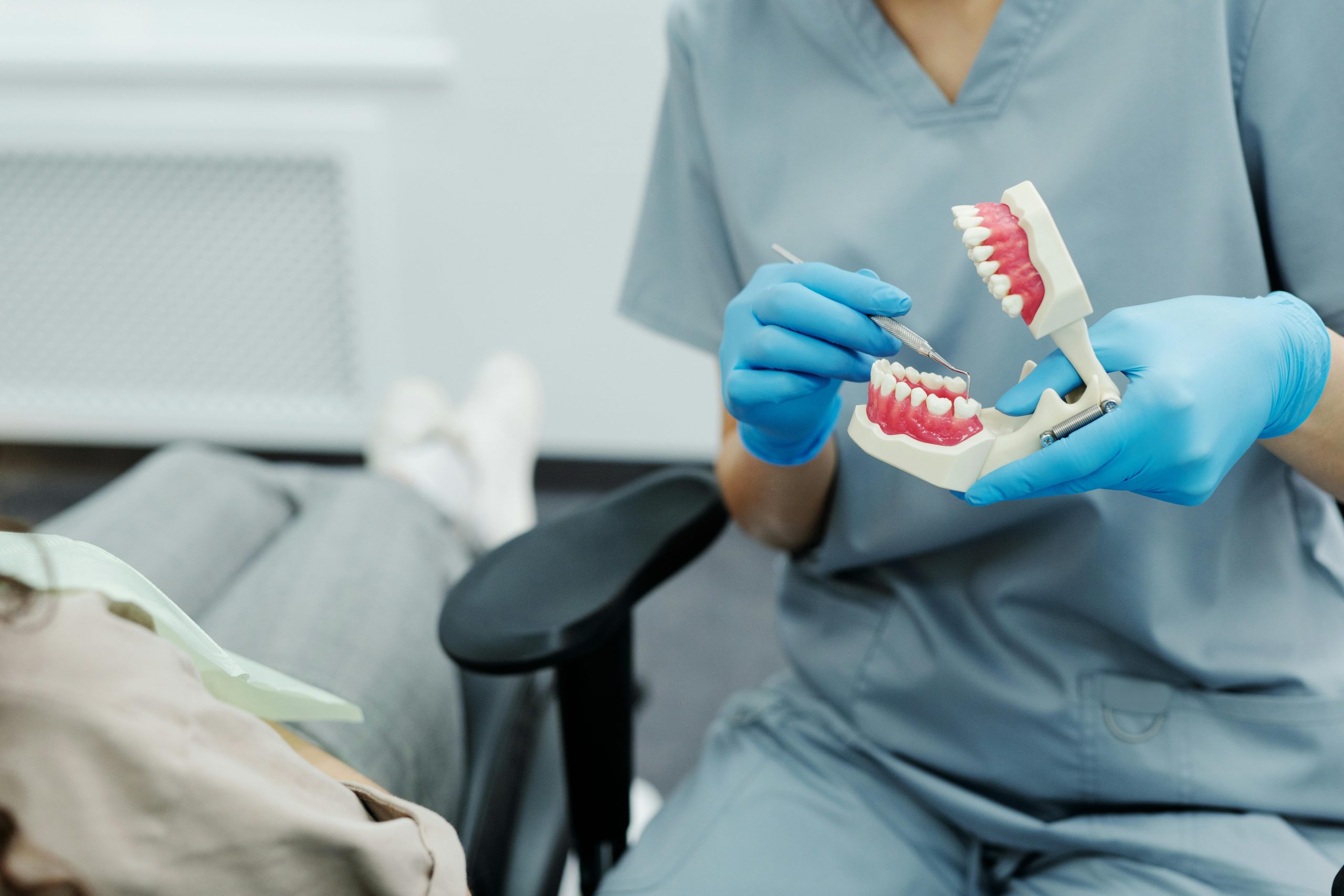Wisdom teeth are one of the most talked-about parts of oral health, and for good reason—they can cause pain, crowding, and dental problems for many people. But does everyone actually have wisdom teeth? The short answer is no. While most people develop them at some point, many never get one, some get only a few, and others get all four.
This comprehensive guide explains why wisdom teeth exist, how many people develop them, why some people never do, and what you should do if yours start causing problems. It’s written in simple, 8th-grade-level language perfect for a general oral health blog audience.
What Are Wisdom Teeth?

Wisdom teeth are the third set of molars that usually appear between ages 17 and 25. They’re called “wisdom” teeth because they emerge at a more mature age than other teeth.
Where They Are Located
- Two on the top back corners of the mouth
- Two on the bottom back corners
In the past, humans needed large molars to chew tough foods like roots, nuts, and raw meats. Over thousands of years, our diets changed, and our jaws became smaller. Because of that, many people no longer have enough room for these extra teeth.
Does Everyone Have Wisdom Teeth?
No—not everyone develops wisdom teeth, and this is completely normal. The number of wisdom teeth someone has varies widely.
Common Scenarios
- Some people have all four wisdom teeth.
- Some have one, two, or three wisdom teeth.
- Some people never develop any.
- Some have wisdom teeth that exist but never erupt through the gums.
Researchers estimate that 10–35% of people never develop wisdom teeth at all, depending on genetics and ethnicity.
Why Do Some People Not Have Wisdom Teeth?
There are several reasons why someone may not have wisdom teeth.
- Genetics
This is the biggest factor. If your parents or grandparents didn’t have wisdom teeth, there’s a higher chance you won’t either.
Certain populations—especially East Asian, Inuit, and Indigenous groups—are more likely to be born without wisdom teeth due to evolutionary changes in jaw size and diet.
- Smaller Jaw Size
Many people have smaller jaws than humans thousands of years ago. A lack of space may prevent the teeth from forming at all.
- Evolutionary Changes
Over time, humans adapted to softer, cooked foods. Our bodies gradually stopped needing extra molars for grinding tough plants or raw meats.
When Do Wisdom Teeth Usually Come In?
Wisdom teeth typically appear between ages 17 and 25, but they can come earlier or much later. In some cases, they remain below the gumline forever.
Signs Wisdom Teeth Are Coming In
- Soreness in the back of the mouth
- Swollen or tender gums
- Mild headaches
- Jaw stiffness
- A visible tooth emerging
Not everyone experiences symptoms, especially if the teeth come in normally.
Types of Wisdom Teeth
Wisdom teeth don’t grow the same way for everyone, and understanding how they develop can help you know what kind of care or treatment you might need. Dentists generally classify wisdom teeth based on how they emerge and whether they have enough room to grow properly.
1. Fully Erupted Wisdom Teeth
These are wisdom teeth that come in normally and line up well with your other molars. When they erupt fully and are easy to clean, they may not need to be removed. However, regular checkups are still important to make sure they don’t develop decay or affect your bite over time.
2. Partially Erupted Wisdom Teeth
Partially erupted wisdom teeth break through the gum only partway. Because some of the tooth remains covered, this creates small pockets where food and bacteria can easily get trapped. These areas are difficult to clean, making partially erupted teeth more prone to infections, gum swelling, and decay.
3. Impacted Wisdom Teeth
Impacted wisdom teeth are unable to break through the gums properly. They may stay trapped under the gum tissue or bone, or they may grow at an angle instead of straight. Impacted teeth are the most likely to cause pain, swelling, or damage to nearby teeth.
Dentists usually categorize impaction into several types:
- Soft tissue impaction: The tooth is covered only by gum tissue.
- Partial bony impaction: Part of the tooth is trapped in the jawbone.
- Full bony impaction: The entire tooth remains encased in the jawbone.
Because impacted wisdom teeth can lead to infections, cysts, or pressure on other teeth, they often require removal. Regular dental X-rays help your dentist determine the type of impaction and the best treatment plan.
Symptoms of Problematic Wisdom Teeth

Even if you do have wisdom teeth, they don’t always cause issues. But if they do, symptoms may include:
- Pain in the back of the jaw
- Inflamed or bleeding gums
- Swelling around the jaw
- Persistent bad breath
- Difficulty opening the mouth
- Headaches or earaches
- Crowded or shifting teeth
If these signs appear, a dentist should evaluate the teeth right away.
Complications Caused by Wisdom Teeth
Wisdom teeth can lead to several oral health issues:
- Tooth Crowding
They push against existing teeth, causing them to shift or overlap.
- Gum Infections
Partially erupted teeth can create flaps where bacteria collect.
- Cavities
Wisdom teeth are hard to clean, increasing the risk of decay.
- Cysts or Tumors
Impacted teeth can form cysts that damage bone or nearby teeth.
- Bite Problems
Shifts in the jaw or teeth alignment can affect chewing.
Removing problematic teeth early can prevent these long-term issues.
Do Wisdom Teeth Always Need to Be Removed?
No. Not all wisdom teeth need removal. Some come in healthy, straight, and functional.
Removal is typically recommended when:
- There’s not enough room in the jaw
- The teeth are impacted
- Infection occurs
- They cause pain or swelling
- They damage nearby teeth
- They increase cavity risk
- You have recurring sinus problems
Wisdom teeth can stay if:
- They come in fully
- They’re easy to clean
- They don’t cause pain or pressure
- X-rays show no complications
Dentists regularly monitor them to make sure no issues develop.
How Dentists Determine If You Have Wisdom Teeth
Dentists use X-rays and oral exams to check for:
- Developing wisdom teeth
- Tooth angle and growth direction
- Jaw space availability
- Potential impaction
- Bone and root formation
A panoramic X-ray can reveal whether wisdom teeth are present—even if they never erupt.
What If You Don’t Have Wisdom Teeth?
If you don’t have wisdom teeth, that’s perfectly normal. It doesn’t affect your oral health or ability to chew. In fact, it may lower your risk of dental problems later in life.
You also avoid issues like:
- Pain
- Infection
- Impaction
- Surgery
Caring for Wisdom Teeth (If You Have Them)
Even if your wisdom teeth come in normally and don’t cause pain, they still require special attention. These teeth sit far back in the mouth, which makes them harder to clean and more likely to trap food particles and bacteria. Without proper care, they can develop cavities, infections, or gum problems more easily than your other molars. Establishing a good oral hygiene routine helps keep your wisdom teeth healthy and reduces the risk of future complications.
To keep your wisdom teeth in good condition, try to follow these daily care tips:
- Brush the back of your mouth thoroughly: Use a soft-bristled toothbrush and angle it toward your back molars to remove plaque from hard-to-reach spots.
- Use floss picks or water flossers to reach behind molars: These tools make it easier to remove trapped food and reduce the chance of gum irritation.
- Rinse with antibacterial mouthwash: This helps kill bacteria that brushing and flossing may miss.
- Attend dental checkups twice a year: Regular cleanings allow your dentist to watch for early signs of decay or gum issues around your wisdom teeth.
- Follow up with X-rays as recommended: X-rays help your dentist check the roots, alignment, and condition of your wisdom teeth over time.
By staying consistent with these habits, you can maintain healthier wisdom teeth and avoid many of the common problems that come with them.
Wisdom Teeth Removal: What to Expect
If you need your wisdom teeth removed, the procedure is usually simple and safe.
What Happens During Removal
- Local or general anesthesia is used
- The dentist opens the gum and removes the tooth
- Stitches may be used to help healing
Recovery Tips
- Rest for 1–2 days
- Avoid hard or crunchy foods
- Keep the wound clean
- Use ice packs to reduce swelling
- Follow your dentist’s aftercare instructions
Most people recover fully within a week.
Frequently Asked Questions
- How many wisdom teeth does a person normally have?
Most people have four, but many have fewer—or none.
- Can wisdom teeth grow back?
No. Once removed, they do not return.
- What age do wisdom teeth stop growing?
Most stop developing by age 25, but some can grow later.
- Can you have wisdom teeth with no symptoms?
Yes. Some people never feel pain, even with impaction.
- Is it rare to have no wisdom teeth?
Not rare. Up to one-third of people never develop them.
Conclusion
So, does everyone have wisdom teeth?
No—many people never develop them, and that’s completely normal. Wisdom teeth vary from person to person depending on genetics, jaw size, and evolution. Whether you have none, one, or all four, the most important thing is keeping your mouth healthy.
Regular dental visits, X-rays, and proper oral hygiene will help ensure that your wisdom teeth—if you have them—don’t cause problems later in life. And if removal is needed, modern dentistry makes the process safe, manageable, and routine.